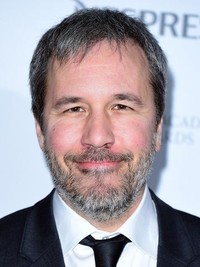Denis Villeneuve

As a multiple Genie Award winner, Canadian director Denis Villeneuve was at the helm of several critically-acclaimed films, including "Maelström" (2000) and "Incendies" (2010), before he began working in Hollywood with the tense moral drama "Prisoners" (2013) and his international breakthrough film, science-fiction drama "Arrival" (2016). A prolific director able to work in a wide variety of genres, Villeneuve was one of Francophone Canada's most compelling auteurs of his generation. Born in the southern Quebec suburb of Gentilly on October 3, 1967, Villeneuve was initially interested in science before he abandoned the laboratory and decided to pursue his love of movies. He studied film at the Université du Québec à Montréal and began his film career in his early twenties when he was credited as director for the television documentary "La course destination monde" (1988). Two years later, he entered Radio-Canada's youth film competition "La Course Europe-Asie" in 1990 and won. These early successes allowed him to earnestly pursue more film projects, albeit small, low-budget productions. Without any studio support, Villeneuve wrote and directed a short film titled "REW-FFD" (1994), followed by an anthology of six short films, "Cosmos" (1996), in which he directed the segment titled "Le Technetium." With a couple of short films under his belt, Villeneuve next tackled a feature. Written and directed by himself, "Un 32 août sur terre" (1998) was screened at the 1998 Cannes Film Festival, where it was received positively. Villeneuve's next full-length feature, "Maelström" (2000), built upon his previous success and showed off his burgeoning talents. Once again written and directed by Villeneuve himself, "Maelström" was a drama about a depressed, alcoholic woman who falls in love with the son of a man whom she accidentally killed in a hit-and-run. The film was widely praised on the international film festival circuit, winning directorial awards for Villeneuve from the Vancouver Film Critics Circle and the Toronto International Film Festival. "Maelström" was also recognized several times at the Genie Awards -- Canada's equivalent to the Academy Awards -- including wins for Best Motion Picture and Best Director for Villeneuve. Nearly a decade later, the writer-director returned with the tense hostage drama "Polytechnique" (2009), based on a mass shooting that took place at a Montreal college in 1989. The Academy of Canadian Cinema and Television deemed "Polytechnique" the best Canadian film of the year, sweeping seven of the major awards at the 30th Genie Awards, including Villeneuve's second Best Director award. Unlike the long gap between Villeneuve's first and second features, he returned the following year with the sibling drama "Incendies." Once again, he claimed the Best Director Genie award, for the second consecutive year, but the film was also recognized internationally, including an Oscar nomination for Best Foreign Language Film several more festival awards. With his international profile at its highest point yet, Villeneuve made a pair of films in quick succession, both featuring Hollywood star Jake Gyllenhaal. "Enemy" (2013) was an erotic thriller based on Portuguese author Jose Saramago's novel The Double. The more high-profile "Prisoners" (2013) was an American-backed film co-starring Hugh Jackman and Terrence Howard as a pair of suburban neighbors whose daughters are abducted and Gyllenhaal as the detective investigating their disappearance. Both "Prisoners" and "Enemy" premiered at the 2013 Toronto International Film Festival to positive reviews. His next film, drug war thriller "Sicario" (2015) was a major critical success that raised Villeneuve's American profile considerably. That led to his first major American studio film, the philosophical alien invasion story "Arrival" (2016) starring Amy Adams as a linguist attempting to communicate with aliens making first contact with Earth. The film scored eight Academy award nominations, including Best Picture and Best Director, but won only for Best Sound Editing. Villeneuve immediately capitalized on the film's success by helming science fiction reboot "Blade Runner 2049" (2017), which opened to uniformly rapturous reviews from both professional critics and social media tastemakers, and developing a new version of cult SF favorite "Dune."